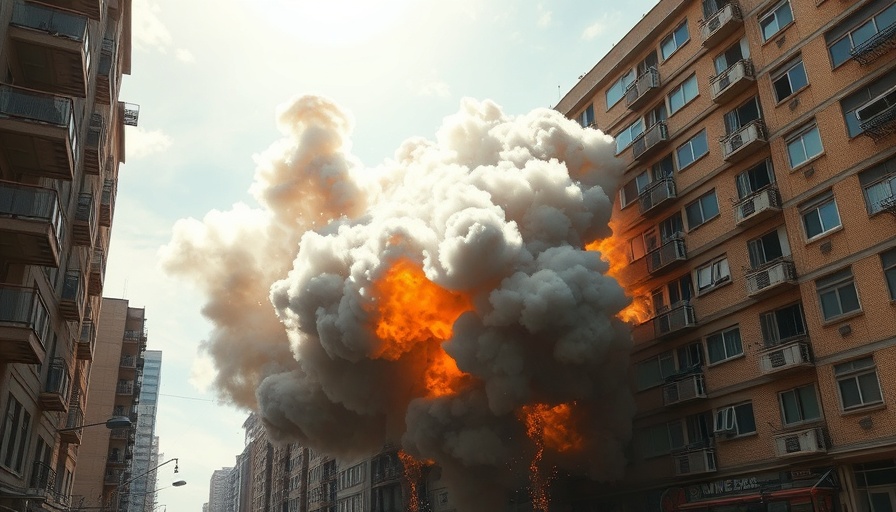
Escalating Tensions: Israeli Strikes and Regional Stability
On April 27, 2025, Israeli military forces targeted a residential area in the southern suburbs of Beirut, a stronghold for the militant group Hezbollah. This significant escalation raised alarms regarding the stability of the cease-fire established after recent conflicts between Israel and Lebanese militants. The Israeli government stated that the strike was aimed at infrastructure housing precision missiles allegedly stored by Hezbollah, a faction equipped and supported by Iran.
Understanding the Broader Context of the Israeli-Lebanese Conflict
Israel's attack is a continuation of a long history of conflict with Hezbollah, underscoring the ongoing tensions between Israel and Lebanon. Since its inception, Hezbollah has been viewed by Israel as a significant threat due to its military capabilities and regional alliances. Historically, the conflict has seen peaks and valleys; however, recent events point towards a potential breakdown of delicate peace efforts monitored by the international community.
Hezbollah's Reaction and the Intricacies of Regional Power Dynamics
In the wake of the Israeli strikes, Hezbollah has remained tight-lipped, but the implications of such actions could provoke retaliation or further military escalation. Lebanese President Joseph Aoun condemned the strikes as violations of sovereignty and expressed that Israel's actions could destabilize the region. The response from Hezbollah, which has a robust support base within Lebanon, could influence the trajectory of military actions in the coming days.
The Role of International Powers: France and the United States
President Aoun appealed to international allies, notably France and the United States, for intervention to maintain peace. The position of these nations is critical, as they bear some responsibility for oversight following the cease-fire arrangement. The effectiveness of their influence over Israel's actions will determine whether tensions escalate or defuse in the near future.
An Uncertain Future: Predictions and Concerns
The recent military engagement illustrates the fragile nature of peace in the Middle East. Analysts predict that if these strikes continue unchecked, they may lead to a renewed period of violence, harming civilians caught in the conflict and risking further instability across borders. The repercussions will likely affect not only Lebanon but also other neighboring nations, given the interconnected nature of regional alliances.
Implications for Local Civilians: A Humanitarian Perspective
For the everyday citizens living in Beirut, this act of aggression has profound effects. Many families fear for their safety in conflict-prone areas and how rising tensions may disrupt their lives. Humanitarian organizations have expressed concern about the potential for increased civilian casualties and displacement should military actions expand. The conflict's toll on local communities highlights the urgent need for diplomatic solutions to foster a sustainable peace.
Conclusion: Taking Action for Peace
As the situation unfolds, it becomes increasingly clear that swift action from international powers is essential to curb further violence. Diplomatic dialogues must emphasize restraint and responsibility, urging all parties to engage in constructive conversations rather than resorting to military solutions. The goal should be to achieve enduring peace that prioritizes the safety of regional populations.
 Add Row
Add Row  Add
Add 




 Add Row
Add Row  Add
Add 

Write A Comment